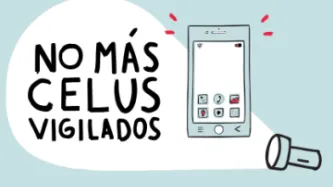Search
Content type: Examples
Corruption scandals have added to Latin America’s challenges in dealing with the coronavirus. In Ecuador, prosecutors identified a criminal ring that colluded with health officials to sell body bags to hospitals at 13 times the normal price, and many others are accused of price-gouging for other medical supplies.
The former Bolivian health minister is under house arrest awaiting trial on corruption charges, government officials in seven Brazilian states are under investigation for misusing…
Content type: Examples
An audit of two apps and a website used by national and local governments in Colombia finds: an absence of public information about the tools, how they work, or how their security and privacy is protected; non-compliance with Colombia’s data protection legal framework, particularly in the area of consent; and reckless deployment of solutions that put hundreds of thousands of users’ personal data at risk. Fundación Karisma, which conducted the audit, makes a number of recommendations for…
Content type: Examples
Human Rights Watch reports that drug cartels and rebel groups are imposing their own lockdowns in rural areas of Colombia and using WhatsApp chats and pamphlets to advise local residents of curfew hours, transport shutdowns, and other bans that are far more strict than those imposed by the government. They have murdered at least eight civilians. In some areas, violent gangs are preventing people from leaving their homes at all, in two provinces armed groups have punished violators by torching…
Content type: Examples
Colombia will adopt the Apple-Google contact tracing platform after finding it necessary to remove the contact tracing functions from CoronApp, the official Colombian coronavirus information app because they didn’t work. CoronApp was downloaded by 4.3 million people, and includes features to report symptoms and locate cases on a map. The contact tracing features, which were supposed to be able to overcome the limitations of the iPhone’s Bluetooth implementation, were provided by the Portuguese…
Content type: Examples
Our partners from Karisma in Colombia analysed three different technological solutions intending to deal with the COVID-19 pandemic, finding vulnerabilities in them (in Spanish).
Link: https://web.karisma.org.co/que-sabemos-de-las-tres-herramientas-que-se-anuncian-como-soluciones-tecnologicas-para-el-manejo-del-covid-19/
Content type: Examples
Civil Society advocates, including PI, expressed their dissaproval of a letter from the Colombian Data Protection Authority, which was intending to give a blank exception to the government in relation with handling the pandemic.
Link (in Spanish): https://web.karisma.org.co/organizaciones-de-la-sociedad-civil-rechazan-circular-de-la-sic-sobre-uso-de-datos-personales-para-controlar-la-pandemia/
Content type: Examples
Colombia's has launched the free, Android-only, prevention-focused Colombia-Coronapp developed by the National Health Institute (INS) to help identify and eradicate the virus across the country, as well provide centralisation and transparency. Besides their basic information, users are asked to say if they have participated in any mass events in the prior eight days, a controversial question because of the recent protests across the country. The app also provides safety tips, an updated map of…
Content type: Press release
The release of a new report by Privacy International exposes Colombia's intelligence agencies' previously unknown history of developing communications surveillance capabilities outside of lawful authority.
The report “Shadow State: Surveillance law and order in Colombia” reveals, via previously unreleased documents, the Colombian police agencies' and intelligence services' long history developing surveillance systems. Rather than building a well-regulated system of surveillance after Colombia…
Content type: News & Analysis
This blog was written by Fundación Karisma, a member of the Privacy International Network. It does not necessarily reflect the views or position of Privacy International.
The Colombian General Prosecutor said recently that the blocking of IMEI is not working. He is talking about a registry created in 2011 that aims to reduce cellphone theft by blocking reportedly stolen phones of Colombian networks.
Fundación Karisma has been following this program and now, after six years…
